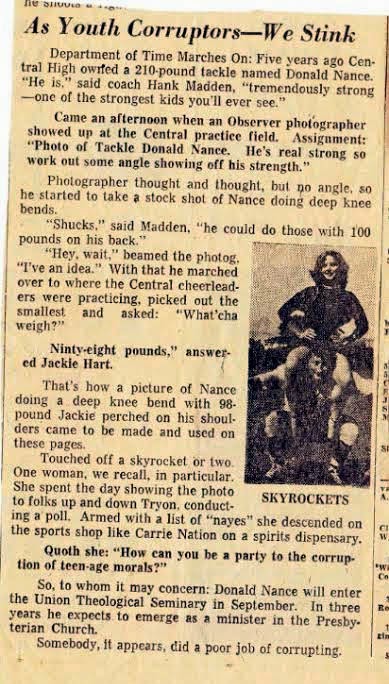Talk about a book that
makes “history come alive;” I've got one that I mentioned on this website before but other than that, and perhaps the 12 or 15
people who purchased it, nobody else ever read it. It's by a man
named Sidney Morris Davis, who was a Yankee cavalryman in the Civil
war whose first brush with death happened about a mile from my house
in Falls Church, VA when a Confederate sharpshooter's bullet barely
missed his head as he rode in formation along highway 29.
His description of the
landscape pinpointed exactly where the spot was.
I drive past it almost
everyday.
Sidney Davis' experiences
were almost unbelievable. He learned, quite accidentally during a
brief furlough from the War, that he had been an indentured servant
to the farmer he and his father had been living and working with
outside Pittsburgh.
At the same time, discovered that
his alcoholic mother, whom he never knew, had sold him for $35.
Before his experience as a
COMMON SOLDIER was over he had been held as a prisoner of war by the
Confederates and upon release, tried to return to his Yankee Unit,
which he discovered had been disbanded. Having no way to prove his
incarceration by the Confederates, he spent 6 more months in a Union
prison charged with desertion.
Oh, and Sidney Davis was
my wife's Great Grandfather. There may be a few more “greats”
in there, but who's counting.
I remember one of my
teachers at Central told the class one day about the joy of reading a
book by a great man. She said it's just like he's there in the room
talking to you!
Davis called himself a
common soldier, which is the name of his book.
Davis was no "great man" by anyone's standards, but as I read Davis'
words, the voice I hear is anything but common!
He was captured by the Rebels during
the battle of Gettysburg and thus began the long march South. At New
Market, Virginia the prisoners were crowded on train cars for the
long ride to Richmond and their eventual destination Belle Isle
prison.
"I do not think I shall forget that ride to Richmond during my existence in this life. The train
moved, as far as I can judge, at the rate of about 10 miles per hour. The sun was fairly blazing in a cloudless sky. For the first few miles the novelty of the ride stirred up our spirits; but the journey soon became a monotonous one, and the utter impossibility of one's resting oneself when tired of standing added to one's agony.
Stoppages were so frequent that the expressed doubt as to our reaching Richmond before the month was ended seemed not to be so extravagant after all.
The men began to suffer from want of water, and , although we ran along the mountain side and saw the clear crystal streams come dashing down almost within reach of our hands, we could not quench our consuming thirst. The harvesters were busy in the meadows; the farm houses in the distance reminded me of the contented days of "auld lang syne," the cattle in the fields raised their heads to look at the supremely bunches of flies, and as I looked on in my despairing soul, it seemed as if we were to be forever isolated from all this happy world.
The ride from Gordonsville to Richmond was devoid of interest. I remember that it grew dark soon after we left the former town, and that there seemed to be an endless monotony of pine forests and lonely fields.
But few words were spoken that night. I managed to secure a seat on the end of a car beside one of the guards...a tall, lean, lank man, forty-five or fifty years of age, with long reddish hair and whiskers...and as comfortable as circumstances would permit.
About midnight I felt the guard lean heavily upon me, and from his hand slipped the dreaded musket. As it fell I seized it, and thus prevented its loss. The man was sound asleep.
My first impulse, now that I had an enemy in my power, was to push him off suddenly between the cars, and have him crushed to death; but it occurred to me that such an act would simply constitute a cowardly murder; then the vision of a family in tears rose vividly before me.
I awakened him, gave him his gun, and cautioned him playfully as to his duty as a soldier.
He seemed very grateful, and said he was completely worn out from fatigue. For a few moments he sat up, and then settled back again...sound asleep, and I once more caught the gun as it fell.
I allowed him to sleep until we reached Richmond, just before dawn, when I aroused him."
Common Soldier?
No way! But he sure got the "uncommon war" part right!
-Ed
 "There are a number of complaints about voting machines that when a citizen tries to vote for a Democrat, it actually registers as a vote for a REPUBLICAN."
"There are a number of complaints about voting machines that when a citizen tries to vote for a Democrat, it actually registers as a vote for a REPUBLICAN."


































